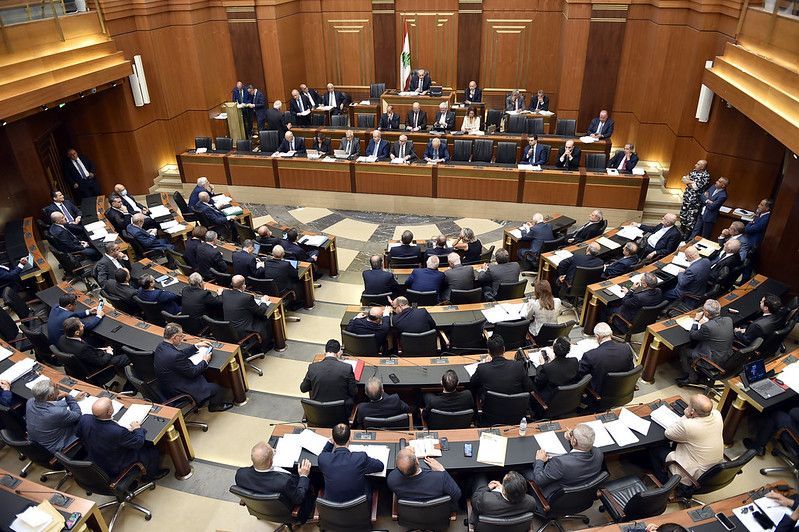
The Lebanese Parliament held two separate sessions on Thursday – one in the morning and one in the evening – to debate and vote on a series of legal, administrative, and economic bills. Among the approved texts was the long-anticipated law on the organization of the judiciary, widely regarded as a significant step forward in Lebanon’s stalled institutional reform agenda.
Judicial Independence Law Passed
Postponed to the evening session to allow for the merging of a government-drafted bill with a proposal submitted by the Parliamentary Administration and Justice Committee, the law on judicial independence was eventually passed in a single-article vote. This method drew criticism from some judges, who argued it deprived MPs of the opportunity for a clause-by-clause debate and undermined democratic principles.
Originally proposed in 2018, the reform faced years of delays and amendments. MP Georges Adwan, head of the relevant parliamentary committee, stressed that the legislative process had not been subject to political or external pressure. He also noted that the committee had consulted with ministers and the Supreme Judicial Council (CSM) before drafting the final version.
The law, a compromise between the government and Parliament, introduces several key changes to the structure of the High Council of the Judiciary, an essential body in the governance of the judiciary.
Despite criticism and concessions, the law’s passage marks a significant step toward modernizing Lebanon’s long-criticized judicial system. The real test, however, will be in its implementation.
Green Light for Banking Sector Reform
During the evening session, Parliament approved the banking sector reform law in the majority of its articles, as submitted by the Finance and Budget Committee.
Committee chairman Ibrahim Kanaan emphasized the urgent need to revise the annex concerning the hierarchy of private capital used to absorb financial losses, specifically to exclude depositors’ funds from this hierarchy. He stressed that depositors’ savings must be protected and addressed explicitly in both the deposit recovery law and the financial gap compensation law, which remain pending.
Calling the bill a “historic decision”, Kanaan insisted that no credible reform of the banking sector can move forward without serious measures to restore Lebanese depositors’ rights. A topic that had been sidelined in previous government recovery plans.
The implementation of the reform is tightly linked to the passage of the financial gap compensation law, without which the broader banking restructuring strategy remains incomplete.
Kanaan also stressed the importance of guaranteeing depositors’ representation in liquidation committees, in line with international standards and the requirements of the International Monetary Fund (IMF).
Parliament Speaker Nabih Berri stated that Prime Minister Nawaf Salam had assured him that weekly Cabinet meetings would be held every Wednesday until the financial gap law is finalized, with the objective of completing the process by September at the latest.
Four Bills in All
In total, four bills were approved on Thursday:
– An amendment to Law No. 11 of June 12, 2025, on commercial leases, introducing changes to reflect the economic crisis. The proposal passed with 65 votes in favor, 21 against, and 15 abstentions.
– A modification of Law No. 73 of April 23, 2009, concerning administrative compensation for public school principals.
– The long-awaited law on the organization of the judiciary.
– And the banking reform bill introduced by Decree No. 193.
Meanwhile, a proposed amendment to Article 37 of Law No. 367 (1994) concerning the pharmacy profession was sent back to the Health Committee for further review, particularly regarding the regulation of advertising for medicinal plants.



Comments